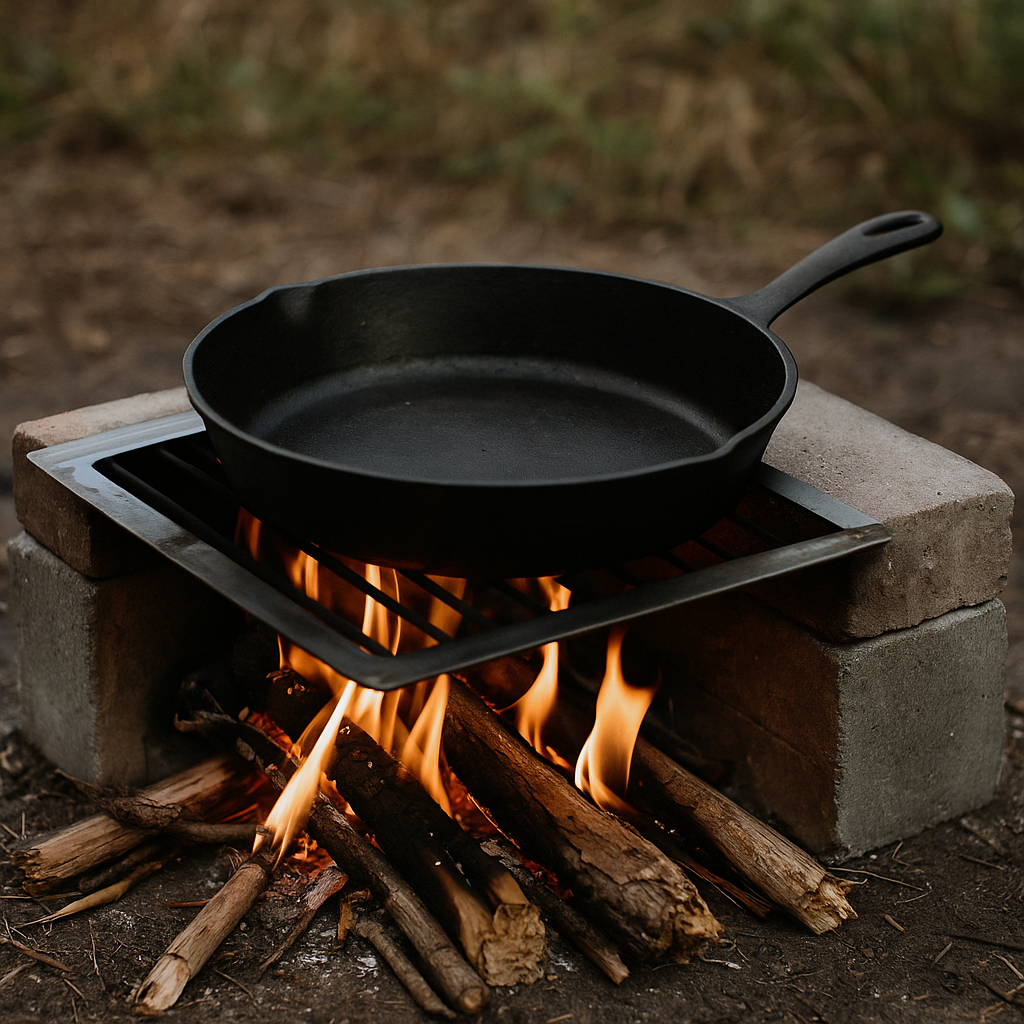When the grid goes down — or you’re living without it — cooking becomes a whole new game.
I’ve been doing this a while, and I’ll tell you right now: it’s not about having fancy tools. It’s about knowing how to use what you’ve got when you don’t have what you need.
So here’s how I get meals done, even with zero power and no running water.

1. Ditch the Microwave Mindset
If you’re used to pushing buttons and walking away, that’s the first habit you’ll have to break.
Off-grid cooking takes time. It’s hands-on. You don’t just flip a switch and go.
I plan meals around daylight, weather, and fuel. If it’s cloudy and I’m using solar, I skip anything power-hungry. If it’s windy, I’m not firing up the rocket stove.
✅ Tip: Plan meals that cook slow but require little attention — like stews, rice, and beans.
2. Your Heat Source is Everything
I rotate between a few setups:
- Propane camping stove — fast, simple, but stockpile fuel
- Rocket stove — my favorite for small meals using twigs and scrap
- Solar oven — great on clear days; I’ve baked bread and cooked chicken in mine
- Fire pit with grill grate — old-school but always works
When in doubt, I use cast iron. Doesn’t matter if it’s propane or coals — it holds heat and gets the job done.
See my guide on essential off-grid tools here →
3. Simplify Your Ingredients
You don’t need 50 spices or six pans. I keep:
- Rice
- Beans
- Lentils
- Flour
- Salt, pepper, garlic powder
- Shelf-stable fats (ghee, coconut oil)
I cook a lot of one-pot meals. Soups, skillet dinners, flatbreads over the fire. Simple stuff that fills you up and keeps dishes to a minimum.
✅ Tip: Pre-mix spice blends in jars for go-to flavor without fuss.
4. Water Matters More Than You Think
No sink? Things change fast.
I keep a 5-gallon jug near my cook area and a spray bottle for light cleaning. Boil water when needed, and reuse rinse water for cleaning gear (not drinking).
Need help with water storage? Start here →
5. Practice Before You Need It
The middle of a blackout is the worst time to learn how to use a solar oven.
I do “grid-down weekends” — no lights, no fridge, just what I’d have if the power quit. Helps me dial in what works and what doesn’t.
You’ll find out real quick which tools are worth it and which ones are dead weight.
My Favorite Off-Grid Meals
Here’s what I make when I’m short on time or energy:
- Flatbread (just flour, water, salt, and heat)
- Bean & rice skillet with canned veggies and spices
- Campfire stew — whatever’s around tossed into one pot
- Egg scramble (if I’ve got chickens laying)
Nothing fancy. Just fuel for the body.
Final Thoughts
Cooking off-grid isn’t about perfection — it’s about adapting.
You’ll burn stuff. You’ll undercook stuff. You’ll learn.
But over time, it gets easier. More natural. You stop relying on gadgets and start relying on your brain and hands.
If you’re serious about living off the land, getting your off-grid kitchen setup right is just as important as your garden or water supply.
Start small. Practice often. And keep a box of matches close.
Related Posts:
👉 Top Tools Every New Homesteader Should Own
👉 10 Lessons I Learned from Going Off-Grid the Hard Way
“If you can cook with a fire and a pan, you’ll never go hungry.”
– VetStead

Pingback: How to Stay Connected Off Grid When Cell Towers Go Down - VetStead